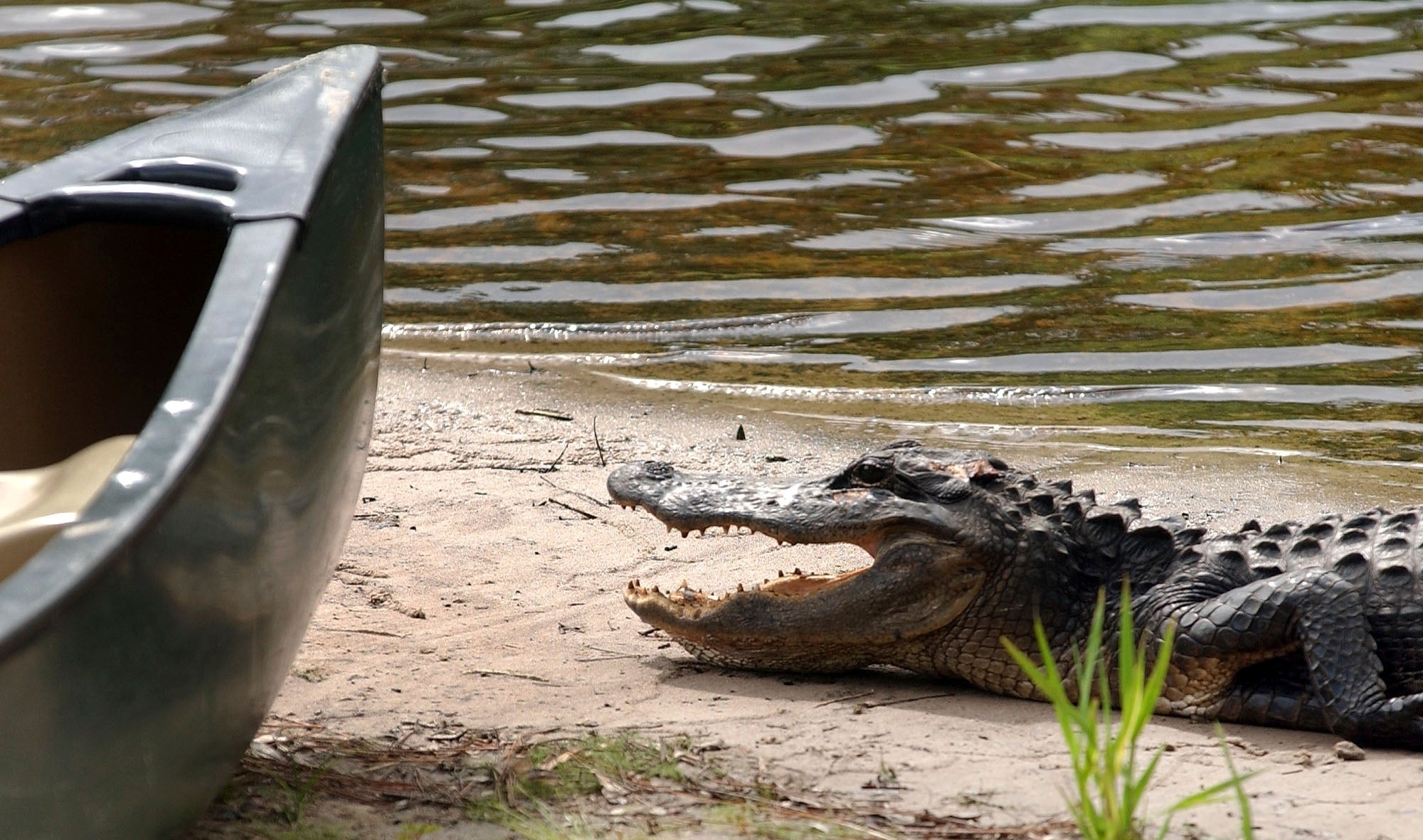Undoing Trump rule won't likely affect Okefenokee mine plan
The Biden administration's plan to revive protections for some wetlands and streams that got eliminated during Donald Trump's presidency isn't likely to restore federal oversight of a proposed mine outside the Okefenokee National Wildlife Refuge

Your support helps us to tell the story
From reproductive rights to climate change to Big Tech, The Independent is on the ground when the story is developing. Whether it's investigating the financials of Elon Musk's pro-Trump PAC or producing our latest documentary, 'The A Word', which shines a light on the American women fighting for reproductive rights, we know how important it is to parse out the facts from the messaging.
At such a critical moment in US history, we need reporters on the ground. Your donation allows us to keep sending journalists to speak to both sides of the story.
The Independent is trusted by Americans across the entire political spectrum. And unlike many other quality news outlets, we choose not to lock Americans out of our reporting and analysis with paywalls. We believe quality journalism should be available to everyone, paid for by those who can afford it.
Your support makes all the difference.The Biden administration’s plan to revive protections for some wetlands and streams that got eliminated during Donald Trump’s presidency isn't likely to restore federal oversight of a proposed mine outside the Okefenokee Swamp's vast wildlife refuge.
On Wednesday, the Environmental Protection Agency announced the first steps toward undoing and replacing the Trump-era environmental rule that narrowed the types of U.S. waters that qualify for federal protection from pollution under the Clean Water Act. A review ordered by President Joe Biden found at least 333 projects had that would have required a federal permit no longer needed one after the Trump administration's rule change took effect last year.
Among the beneficiaries of the 2020 change was Twin Pines Minerals. The Alabama-based company has spent two years seeking permits to mine titanium dioxide on land 2.9 miles (4.7 kilometers) from the Okefenokee National Wildlife Refuge near the Georgia-Florida line.
Federal scientists have warned that mining near the Okefenokee’s bowl-like rim could damage the swamp’s ability to hold water. Regardless, the Army Corps of Engineers declared last October that it no longer had permitting jurisdiction over the project because the rule change under Trump excluded wetlands on the site from federal protection.
Even if Biden moved swiftly to reverse Trump's rule, it's probably too late to force Twin Pines and other project developers already cleared of federal permit requirements to reapply for them, said Kelly Moser, an attorney for the Southern Environmental Law Center.
That's because decisions on whether projects need Clean Water Act permits last for five years, unless there's a specific reason to revisit a particular project.
Moser is handling a federal lawsuit in South Carolina by conservation groups challenging the rollback under Trump. She said getting a court to rule that the Trump administration changed the rule illegally is probably the only way to restore federal oversight of projects like the mine outside the Okefenokee.
“A Biden rule won’t reverse the removal of federal clean water protections, only a court ruling will,” Moser said Thursday. “That’s why we remain in court fighting against the unlawful rule.”
The Okefenokee National Wildlife Refuge covers nearly 630 square miles (1,630 square kilometers) in southeast Georgia and is home to alligators, bald eagles and other protected species. The swamp’s wildlife, cypress forests and flooded prairies draw roughly 600,000 visitors each year, according to the U.S. Fish and Wildlife Service, which manages the refuge.
EPA spokesperson Nick Conger said in a statement that “protecting treasures like the Okefenokee National Wildlife Refuge” is a key reason for replacing the Navigable Waters Protection Rule enacted under Trump.
Still, Conger said the Trump-era rule “will continue to be implemented,” with decisions on permitting requirements lasting five years, until a replacement rule is completed.
In February 2019, the Fish and Wildlife Service wrote that the proposed mine outside the Okefenokee could pose “substantial risks” to the swamp, including its ability to hold water. Some impacts, it said, “may not be able to be reversed, repaired, or mitigated for.”
Steve Ingle, president of Twin Pines, has insisted his company can mine the site without harming the Okefenokee. Ingle has said mining will occur on a ridge above the swamp and won’t go deep enough to cause underground leaks.
In a statement regarding Biden's plan to replace the Trump-era rule, Ingle said: “Right now it would be pure speculation as to what it might or might not be.”
“We will follow the guidelines that are in force now and in the future,” Ingle said, “and will continue to do what the regulators instruct us to do.”
Without federal oversight, sole permitting authority over the proposed mine now rests with the Georgia Environmental Protection Division.
U.S. Sen. Jon Ossoff, a Georgia Democrat, and others have asked state regulators to enlist help from federal scientists as they review five permit applications from Twin Pines. But the Georgia agency has been cool to the offer.
Gov. Brian Kemp a Republican, has declined to take a stand on the proposed mine.
“The onus remains on Governor Kemp and Georgia EPD to accept the offer of assistance from the U.S. Fish and Wildlife Service to cooperate in the investigation of the proposed mine’s impacts on the Okefenokee," said Josh Marks, an Atlanta environmental attorney who opposes the Twin Pines mine.